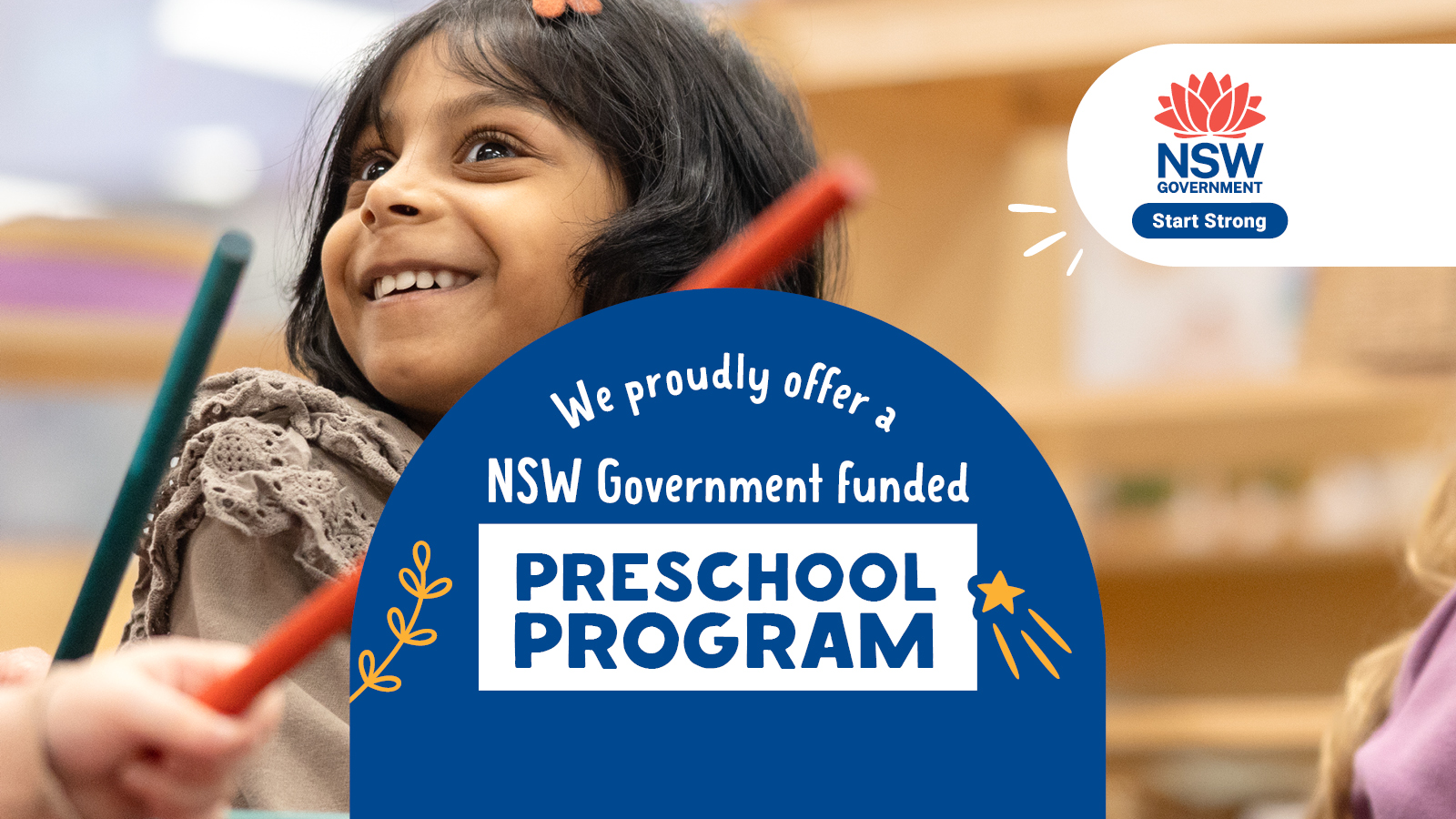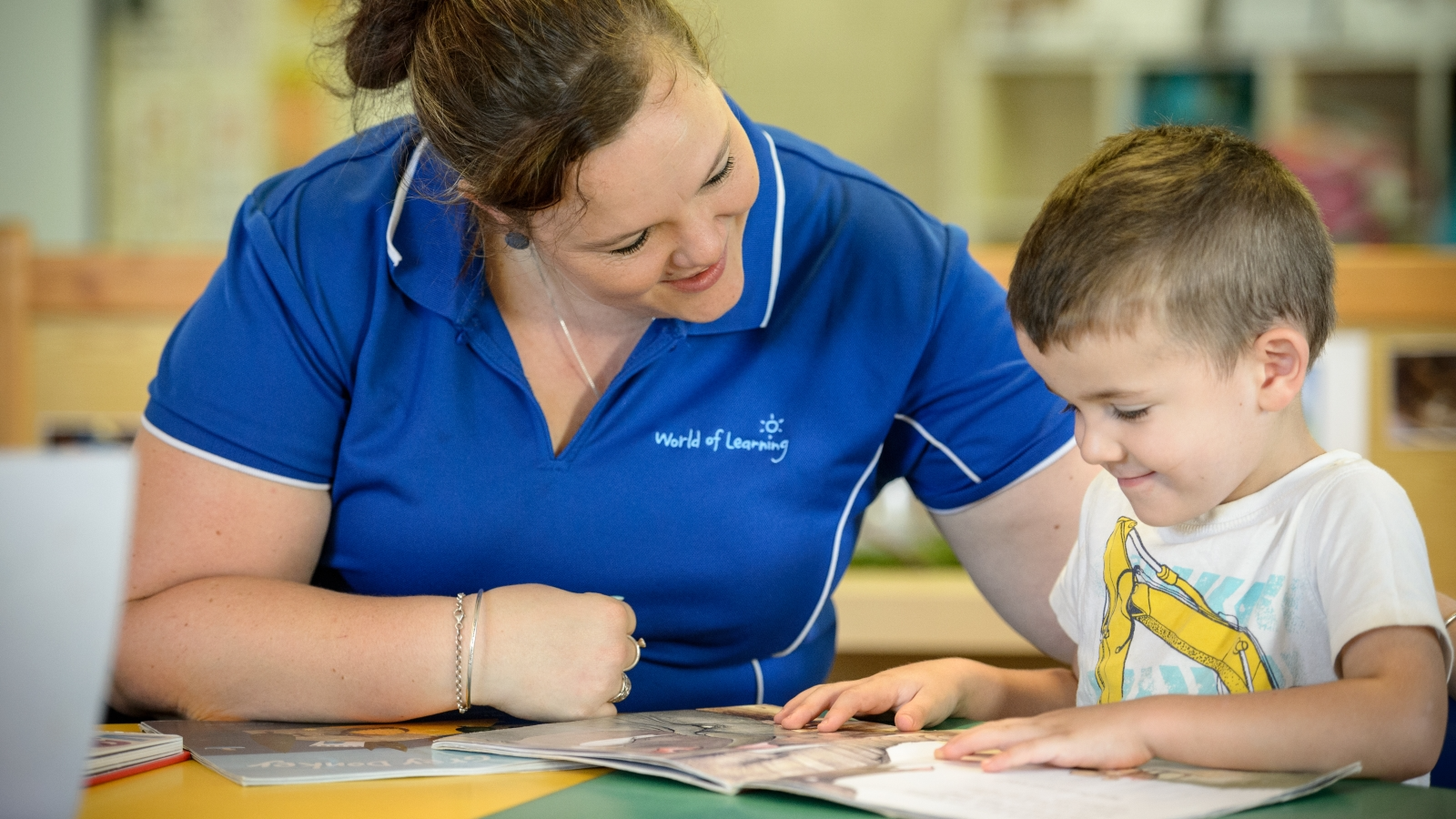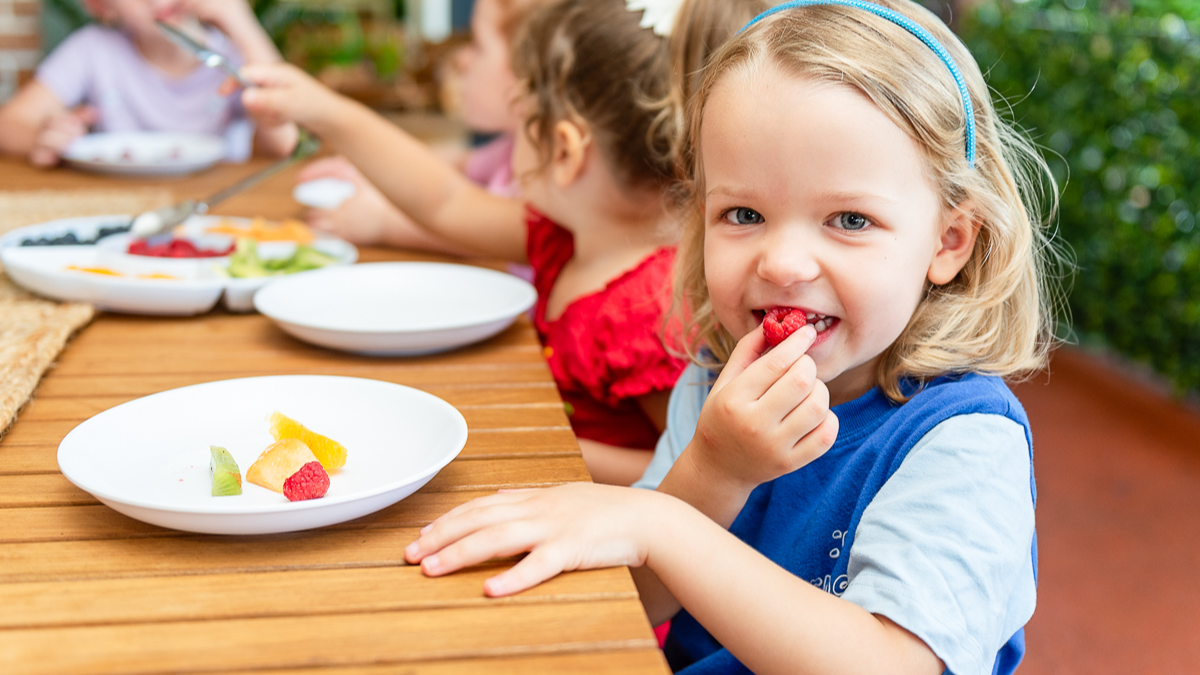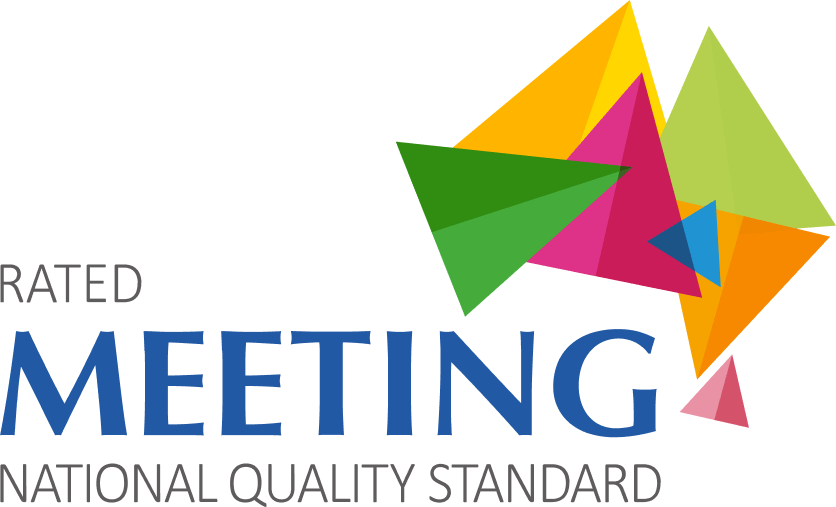“Let the child be the scriptwriter, director and the actor in their own play” - Magda Gerber
Nursery Space: 6 weeks – 2 years
Learning starts from before birth, and our Educators have created a welcoming and nurturing nursery environment where each baby feels safe to explore and discover new things - through their senses, their communication and cues (body language, facial expression and sounds) and by experimenting. On any given day you can see the nursery children engaging in all types of play, water play, music time, story time and more. Every day provides a brand new, exciting adventure for our babies to support their development, learning and wellbeing!
Toddler Space: 2 - 3 years
Our teachers and educators encourage the children to learn through play to help enhance their sensory-motor development. This happens through carefully planned music, dance, games and reading experiences.
On any given day the Toddler children can be seen developing their numeracy by building a tower, sorting objects, pointing and identifying shapes and patterns and participating in counting songs and games.
Children in our toddler space are encouraged to participate in group play. Group play is important as it helps our toddlers develop important social skills such as, turn taking, developing self confidence and emotional self regulation. Our team helps children through talking, planning and role modelling.
Preschool Space: 3 – 6 years
Preschool is a unique time for learning with peers and developing skills for later learning including confidence and curiosity, important skills for starting school. Our play-based program encourages active engagement in learning and supports a range of positive developmental outcomes including resilience, independence, critical thinking and creativity.
The oral language supports literacy learning. A child’s oral language ability is the best predictor for later success in learning to read and write. Hearing the sounds within a language is the first critical step for all literacy learning. Our team supports our Preschool children's development by engaging in rich discussions, introducing new vocabulary as part of everyday conversations, as well as singing, playing games, and reading with the children daily.
Throughout the Preschool year, children use their language to share ideas, ask questions, express themselves, and connect with peers and adults in social settings.
Social-emotional skills, including the ability to self-regulate emotions, is supported through group learning environments. Our team supports each child’s social and emotional development by labelling and talking about emotions and supporting appropriate responses as together, they engage in new and challenging situations. Lastly, ensuring that all children are ready for the ‘big school’ by preparing them for all that ‘big school’ has to offer.
Morning
Anita is 11 months old and enjoys sensory play outside in the sandpit with her friends. She sits near her educator who helps teach her how to scoop the sand into the bucket. Anita is learning how to dig, carry, and move the sand. She is also exploring texture and learning what happens to the sand when she adds water!
Lunch
Anita has finished her lunch and is preparing to take a nap. Her educator changes her nappy, prepares a bottle and reads Anita a story before her afternoon sleep.
Afternoon
Anita and some of her nursery friends enjoy some story time and songs outside in the shaded garden. They read ‘Peepo’ which is Anita’s favourite book.
Morning
Luca is two and a half years old and loves to start his day at the centre outside on the climbing equipment. His friends join him, and together they pretend to be pirates on a ship looking for treasure. Through this exciting dramatic play, Luca is learning about himself and the world around him. Dramatic play is helping Luca identify his interests, abilities, likes and dislikes.
Lunch
Luca is watering the vegetables in the garden. By doing this, Luca is learning the importance of growing and caring for the veggies in the garden. Luca picks a tomato from the garden, which the Chef will use to help make Luca and his friend’s lunch - Spaghetti Bolognese!
Afternoon
Luca enjoys art, and today he is painting a beach scene from a recent family holiday. He adds the finishing touches and sets the painting aside to dry; so that he can take it home to share with his family.
While painting, Luca is learning how to express himself creatively and how to convey his ideas and emotions. Painting is also helping develop Luca’s hand eye coordination, finger, wrist and hand strength. Making marks on paper is important for self expression as well as later learning.
Morning
Ava is almost five years old and can’t wait for today’s carpentry experience - she loves building things! Carpentry experiences allow Ava and her friends to extend their learning through real-life experiences. While participating in carpentry, Ava is learning to problem solve, experiment and predict. She is also improving her hand eye coordination, manipulative skills and muscular strength.
Lunch
Before Ava sits down for lunch with her friends and educators, Ava takes part in the centre’s sports program. Ava loves sports. Sports helps Ava improve her flexibility and strength (perfect for growing bodies!). Sports also allows her to practice different skills in a fun and engaging way.
Afternoon
Ava is off to ‘big school’ next year and she can't wait to start! Ava and her friends will be visiting the local primary school next week. In preparation for the visit, the class is creating a list of questions to ask the Principal and school children.






















































































































































































Social News Feed
Social posts for this centre will appear here once they're available.
Can not get post detail